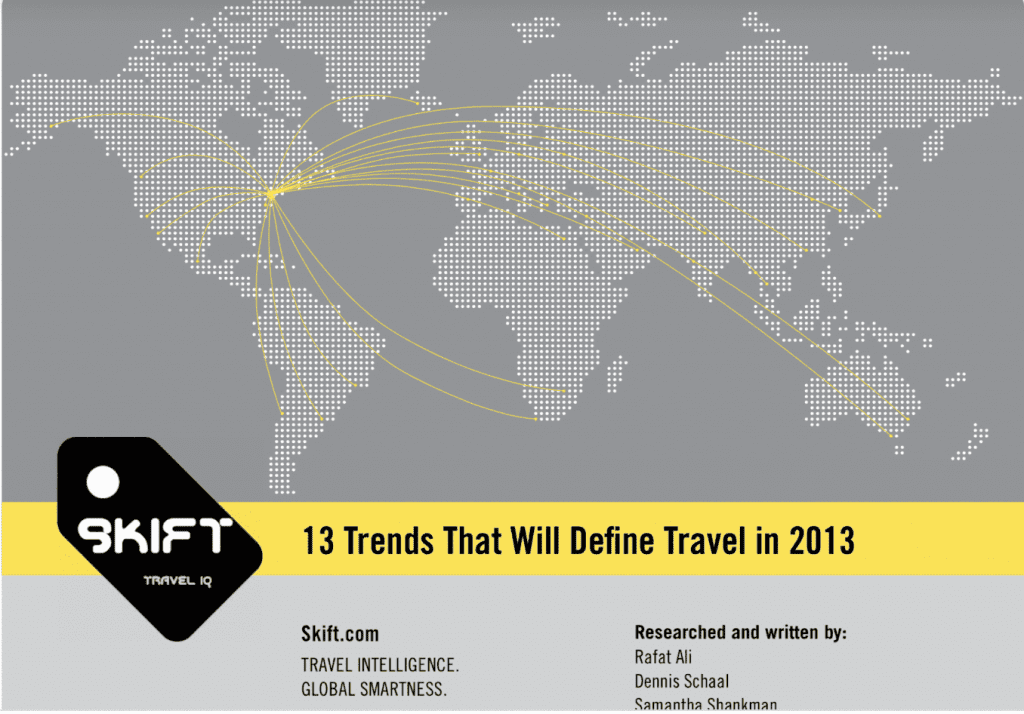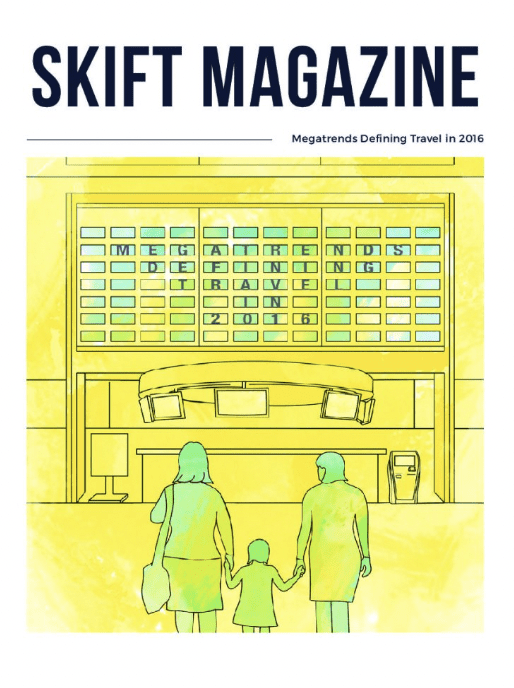Skift Take
Digital tools versus the human side of hospitality. Overtourism versus local control. It's impressive how many issues like these were pivotal a decade ago and remain so.
Skift Megatrends is arguably our largest companywide exercise every year, and we’ve been making our research-driven and editorially informed prognostications for a decade now.
From its earliest days, Skift found its footing collaborating with industry brainiacs and our readers, in formulating our take on the future of travel in the coming year.
Here are some highlights of how we performed every January since way back — and it does seem a long time ago — in 2013 to the present.
We’ll be releasing our 2023 Skift Megatrends on January 10, the same day we kick off our annual Megatrends events in New York City and the next day in London. You can register here.
2013
Many of the inaugural Skift Trends that we published in 2013 — we didn’t start calling them Megatrends for another two years — today are taken for granted as just the way things are. Among those trends, Everyone Wants A Chinese Tourist is a truism now more than ever. Ancillary Fees Are The New Normal without a doubt, although in 2023 they are not so new. And the Blurring of Business and Leisure Travel has become fuzzier than ever thanks to Covid-19 dynamics.
Among the misses, The Rise of Myanmar didn’t happen because of its descent into genocide and military dictatorship. And Airports As Destinations in themselves is true in dribs and drabs, but didn’t become particularly widespread.
2014
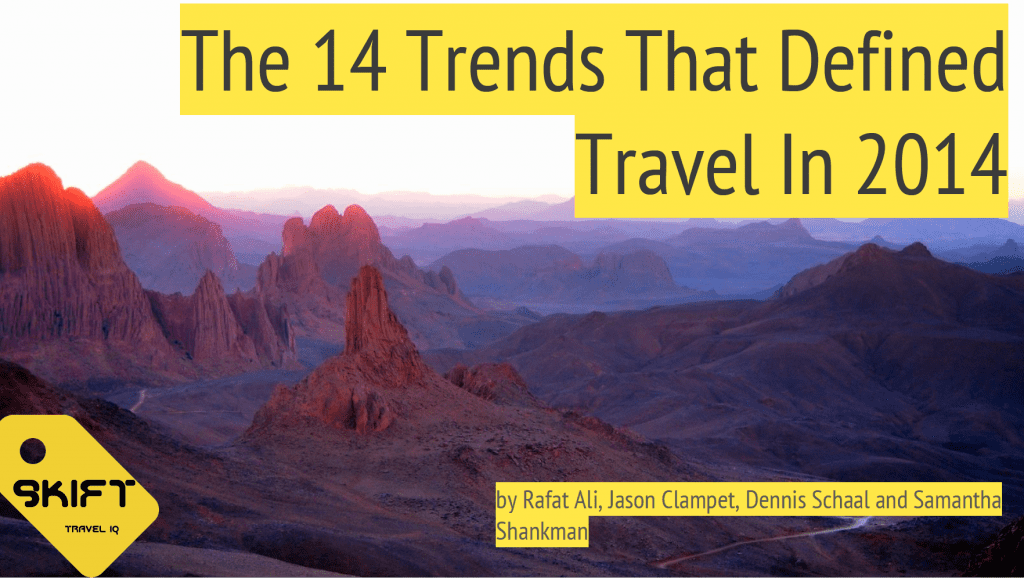
The travel industry is still grappling with our 2014 anchor Trend, The Rise of the Silent Traveler, which we defined as travelers who are “adept at all online and mobile tools,” making human interactions as part of the front-line hospitality experience less fundamental. In 2023, is it all about digital keys to unlock hotel room doors or the general manager who knows your kids’ names and reserves your favorite table at the hardest restaurant to book in town?
Speaking of hotels, 2014’s The Rise of Local in Hospitality was a trend that resonates today with an emphasis on experiences over “things,” as strongly as ever. On the other hand, that year’s The Relaxation of Visa Regulations currently seems like a cruel joke given the year-plus visa wait times in many countries around the world.
2015
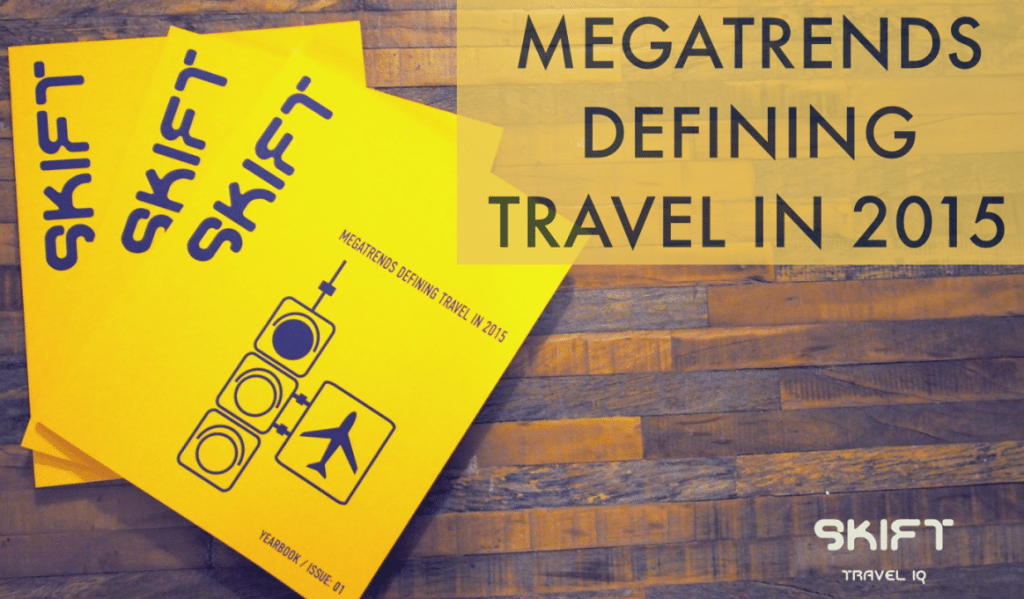
Indeed, it must be said, Hospitality Is Driving Innovation in Travel, which we highlighted as our lead Megatrend in 2015, although the hotel and short-term rentals sectors don’t of course hold the exclusive patent on that phenomenon in 2023, which will see artificial intelligence continue to make smart strides throughout travel.
We called it mostly correctly in 2015 that The Online Travel Duopoly Won’t Reign Forever, referring to Booking.com and Expedia. We correctly cited Google and China’s Ctrip, now called Trip.com Group, as up-and-comers in the travel industry, but omitted mention of Airbnb. Despite our speculation about their potential futures in travel, Amazon hasn’t delivered in a big way, and booking travel through Facebook turned out to be a dud.
2016
Our premier Megatrend of 2016 was The Travel Industry Is Now Ready For A 360-Degree View of The Traveler, which would “open up a huge number of possibilities for travel marketers,” and “elevate and personalize the travel experience further than ever.” The travel industry — and businesses across all sectors — leapt at this more intimate view of customers to target them with advertising and hopefully better cater to their personal likes and dislikes on the road or holed up in a mountain retreat. This remains a travel industry aspiration, but detours such as the GDPR ( General Data Protection Regulation) in Europe, and Apple’s do not track option sidetracked some of these efforts.
2017
Our 2017 Megatrend, Overtourism Goes Mainstream, Destinations Get Smarter About Solving It, was right on point — and still will be a Rorschach Test of the travel industry’s personality traits in 2023 and beyond as global tourism recovers. The summer of 2016 is the year we sent a reporter to Iceland to detail what was happening on the ground and glaciers regarding overtourism in that country, and we should probably send another scribe back to Iceland in 2023 to document the latest remedial steps during the travel industry’s rebound there.
Our Skift Take for this overtourism Megatrend in 2017 is just as true today: “The jury is still out on whether these destinations will be able to effectively manage tourism, or will continue to struggle in the face of mounting backlash from their citizens.”
2018
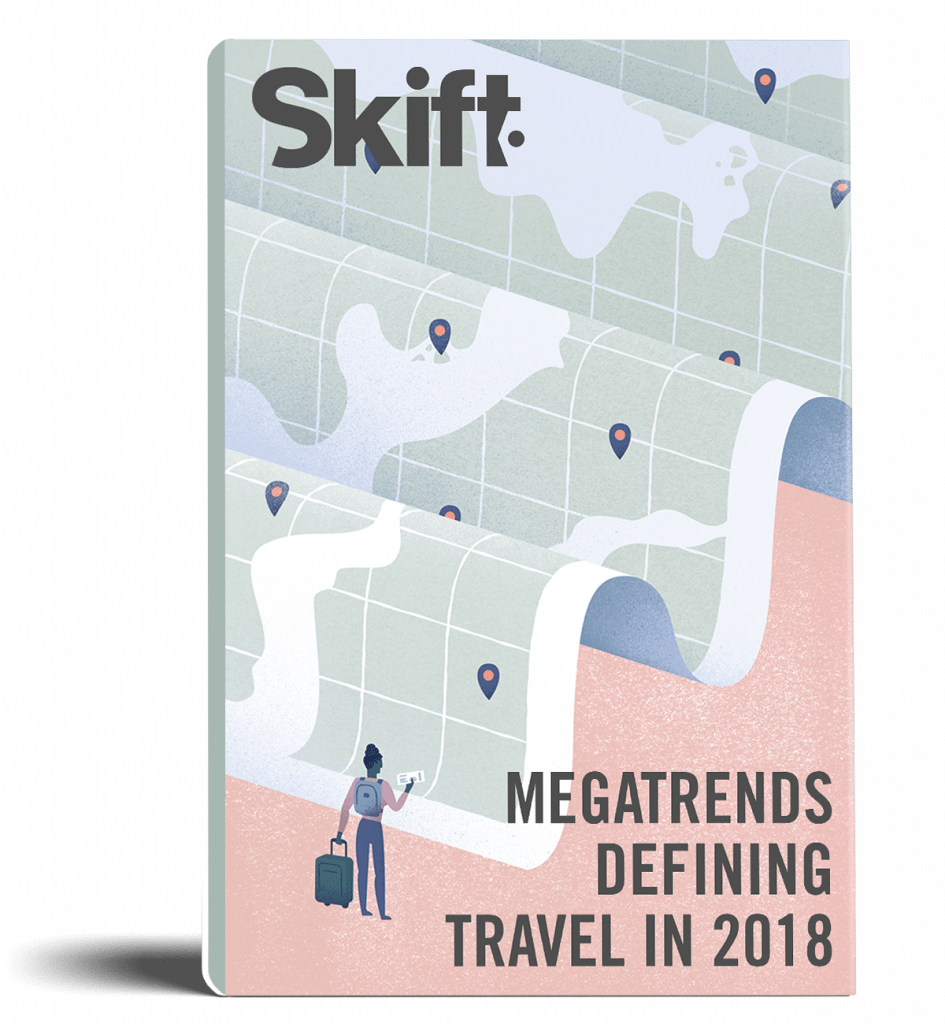
Our 2018 Megatrend, Google Travel’s Product-Led Vision Is Bearing Fruit, has certainly not died on the proverbial vine. Google Travel, whether it’s for flights, hotels or, in recent years for things to do and vacation rentals, is as strong as ever, and getting more muscular. However, in 2018 we spoke of the “looming threat of regulation” of Google as a potential growth inhibitor, and it turns out we underestimated how protracted a scenario that might be in reality.
Another Megatrend of 2018, Extreme Weather Creates Travel Upheaval, citing Hurricane Maria’s Caribbean havoc in the Fall of the previous year, can be copied and pasted into any upcoming Megatrends prognostications in coming years, as climate change scenarios become ever more dire.
2019
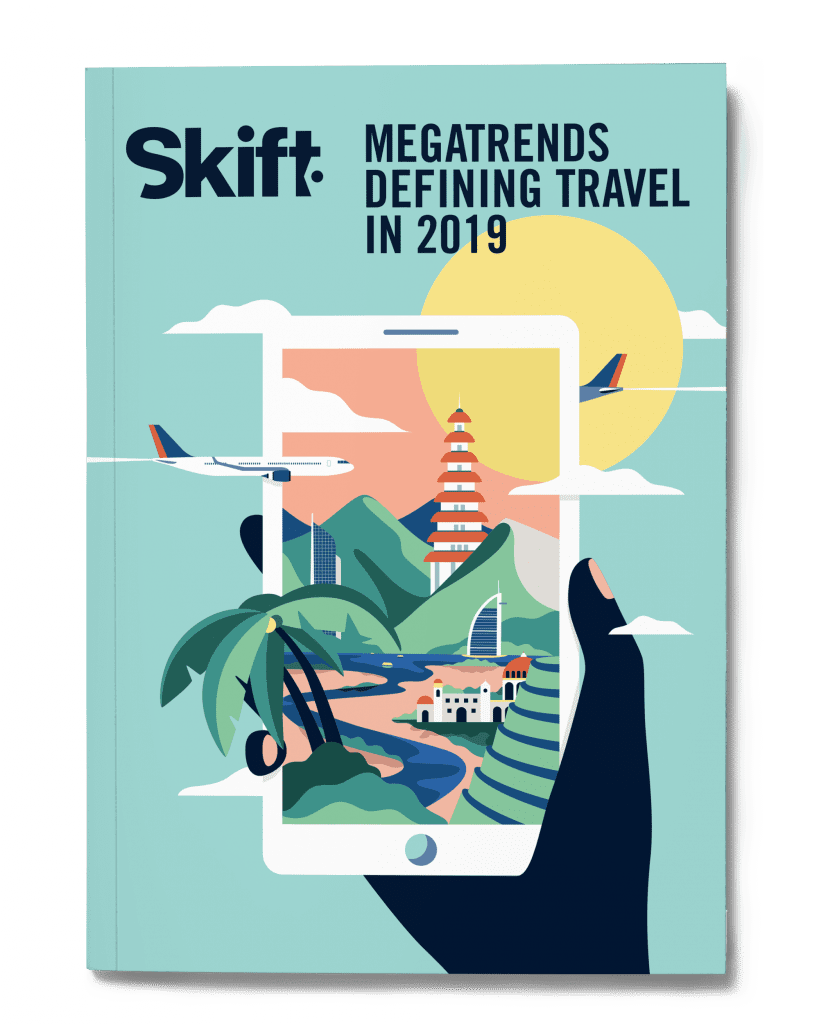
When we wrote our 2019 Megatrends, if only we’d know what would be in store the following year, when Covid-19 obliterated travel patterns, assumptions and the world as we knew it. Those 2019 Megatrend entries, Labor Shortages Force a Wakeup Call for Travel Brands to Treat Workers Better and Wellness Is the New Hook in Travel Marketing have only gained credibility as acute pandemic fallout in 2023.
Labor shortages are still an acute issue across the travel industry as many workers abandoned the sector for better paid and hopefully more stable vocations. And wellness has only become a more deeply ingrained marketing pitch and desire after customers experienced so much deprivation, isolation and suffering during the pandemic.
2020
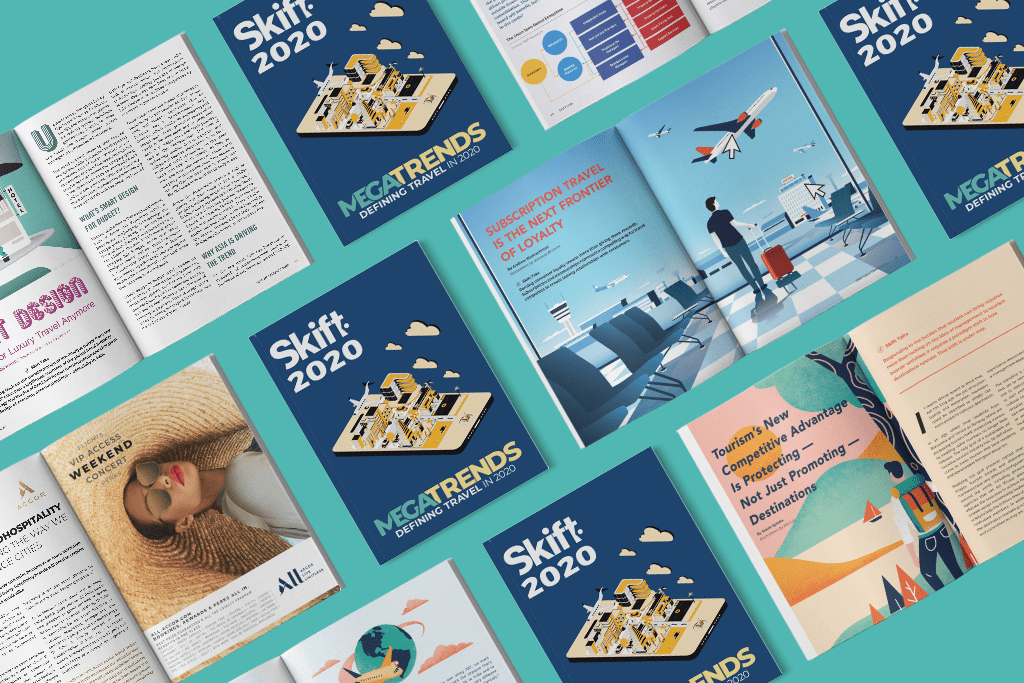
We wrote our 2020 Megatrend, The Future of Travel Will Be Driven by Urban Living Innovations, months before the pandemic began in force, and cities and their hotels were locked down or abandoned. Urban living innovations may once again become driving forces in parts of the world, but less-crowded habitations have gained new appeal.
We were prescient about the Skift Megatrend, Subscription Travel Is the Next Frontier of Loyalty, as eDreams Odigeo, Selina and Inspirato bear witness to trying out the business model. But frontiers, as any pioneer would tell you, are not for the meek. Tripadvisor is still mulling whether to go forward with a problematic subscription plan and Inspirato is seeking to expand non-subscription products to expand its potential customer base, for example.
2021

At the height of the coronavirus crisis in early 2021, we tossed predictions aside for that crapshoot year, and sought to envision what the business of travel might look like in 2025 when the pandemic — hopefully — would increasingly be viewed as a tragedy of yesteryear.
Our Megatrend, Hotels Are Back With Big Upsides for Owners That Stuck Out the Hard Times, is looking more correct with each sunrise and new flagging. Hotels have indeed come back, and many have done so without deeply discounting their average daily rates. Many weaker competitors were forced to cease operating, and properties reopened under new brands or ownership.
We’ll have to wait to 2025 to indeed ascertain whether Travel’s New Cadence Is More Deliberate, Introspective and Soulful, our banner Megatrend written in 2021. There certainly will be a new cadence for a segment of travelers, but we also hedged and noted that mass tourism may pick up in a sometimes-soulless way where it left off in 2019.
2022

Uncertainty Is the New Certainty was a core Skift Megatrend in 2022, and that is foundational in any year. The pandemic onslaught of 2020 reinforced the notion that every year will surprise and confound, some more than others. So travel companies need to be nimble, rehearse crisis scenarios, and have succession plans in place, for sure.
We nailed it in 2022 with our Megatrend, Remote Work Will Define a New Socialization for Business Travel. As our Skift Take stated, “It’s the beginning of an entirely new industry, based around places and spaces that turbocharge employee gatherings.”
As long as some companies labor remotely for at least a good chunk of their calendars, they’ll have to figure out how to bring together their workforces sporadically for face-to-face encounters. The shape of these will be fluid as businesses and their employees figure it all out.
The Daily Newsletter
Our daily coverage of the global travel industry. Written by editors and analysts from across Skift’s brands.
Tags: climate change, covid-19, future of travel, hospitality, marketing, megatrends, megatrends 2023, overtourism, skift live, travel tech
Photo credit: The Blue Lagoon in Iceland in 2015. Gordon Cheung / Flickr

